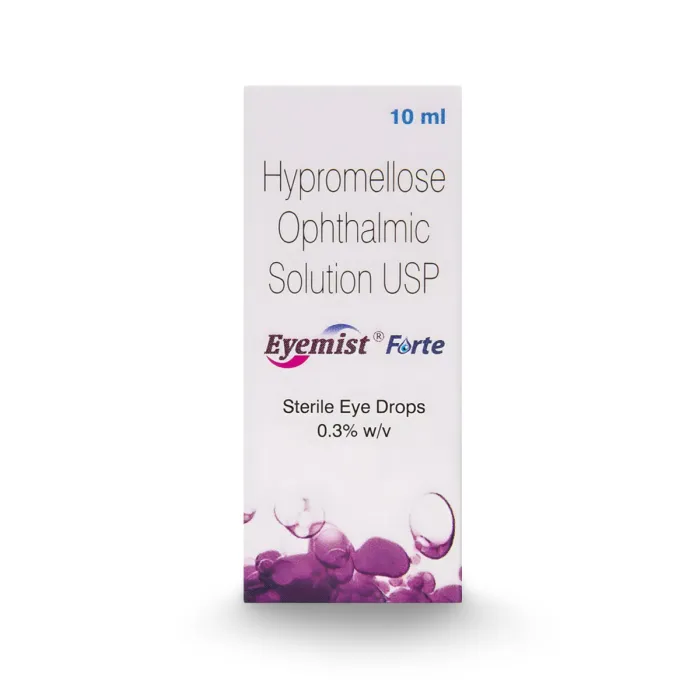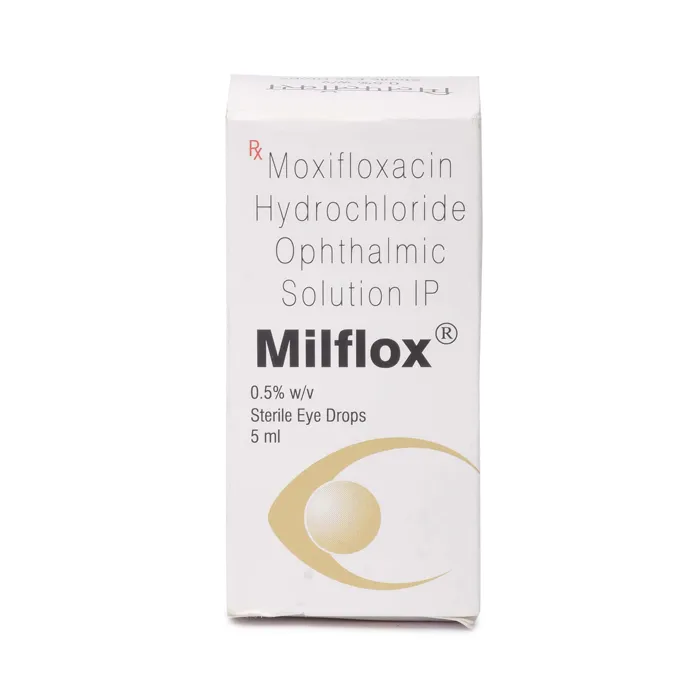Crying is a natural human response to various emotions and situations.
Crying is an emotional relief, but it can also lead to a common physical concern, which is puffy eyes.
The term ‘Puffy eyes from crying’ is used to describe the temporary swelling or puffiness that can occur around the eyes as a result of emotional distress or intense crying.
In this article, we will learn what are the reasons behind puffy eyes from crying, how long this condition typically lasts, and effective treatment options to alleviate this discomfort.
Puffy Eyes from Crying
Puffy eyes, scientifically known as Periorbital edema, refer to the swelling of the skin around the eyes.
This condition can make you look tired, even when you are well-rested.
While puffy eyes can be attributed to various factors such as lack of sleep, eye allergies, and genetics, crying is a prominent cause that often leads to this temporary facial swelling.
Save up to 90% on your medicine bills

Eyemist Forte 10 ml

Milflox 0.5% 5 ml

Restasis 0.05% Ophthalmic Emulsion

Pred Forte 10 ml
How Long Do Puffy Eyes Last After Crying?
The duration of puffy eyes crying can vary from person to person and depends on multiple factors.
Generally, this swelling is short-lived and subsides within a few hours to a day.
However, in severe cases like puffy eyes allergies, where puffy eyes are caused by eye allergies, it may persist for a couple of days.
Several factors influence how long puffy eyes last after crying, including:
Intensity of crying: The intensity and duration of crying episodes can impact how long puffy eyes last. If you’ve had an emotional outburst, the swelling may be more pronounced and last longer.
Individual differences: Each person’s body reacts differently to crying. Some individuals may experience more prolonged puffy eyes, while others recover more quickly.
Skin type: Skin type plays a role in how long puffy eyes last. People with thinner and more delicate skin around their eyes may notice puffiness more than those with thicker skin.
Hydration and diet: Dehydration and consuming salty foods can exacerbate puffy eyes. Ensuring proper hydration and a balanced diet can help in reducing the duration of puffiness.
Treatment for Puffy Eyes from Crying
Now that we know what ‘puffy eyes from crying’ mean and how long they typically last, let’s explore effective treatment to reduce or alleviate the discomfort associated with this condition.
Sometimes, home remedies such as cold compress, cucumber slices, tea bags, eye cream, and elevating your head can also help reduce the puffiness of the eye.
Let’s talk about these treatment options in detail.
Cold compress: A cold compress is a simple and effective way to reduce swelling and soothe puffy eyes.
Cucumber slices: Cucumber slices have long been used to reduce puffiness around the eyes. Cucumbers have a cooling and anti-inflammatory effect on the skin, which helps with eye strain.
Eye cream: Over-the-counter eye creams with ingredients like peptides or caffeine can help diminish puffy eyes.
To learn more about what is the best eye cream for puffy eyes, read best eye cream for puffy eyes.
Elevate your head: Sleeping with your head elevated can help prevent fluid from pooling around your eyes while you sleep; this can reduce morning puffiness.
Tea bags: Cold tea bags can help reduce puffiness; after steeping the tea bags, allow them to cool in the refrigerator, and then place them on your closed eyes for 10-15 minutes.
To learn more about how tea bags help puffy eyes, read Do tea bags help puffy eyes.
Closure
In conclusion, ‘puffy eyes from crying’ is a common and temporary condition resulting from emotional distress and intense crying.
While it can make you appear tired, there are effective treatments to reduce the puffiness.
Cold compresses, cucumber slices, tea bags, eye creams, and elevating your head are all helpful methods to alleviate this discomfort.
Puffy eyes from crying usually subside within a few hours to a day. Seek medical attention immediately if the symptoms persist or worsen.

Frequently Asked Questions
Do certain skin types experience puffy eyes more than others after crying?
Yes, people with thinner and more delicate skin around their eyes may notice puffiness more than those with thicker skin.
How can I prevent or minimize puffy eyes from crying?
To prevent or minimize puffy eyes, you can stay hydrated, consume a balanced diet, avoid rubbing your eyes when crying, and ensure you get enough restful sleep.
Can prolonged screen time contribute to puffy eyes after crying?
Yes, prolonged screen time can lead to eye strain and may exacerbate puffy eyes. It’s important to take breaks and practice eye care to reduce this effect.
Can crying in extreme weather conditions worsen puffy eyes?
Yes, crying in extreme weather conditions can exacerbate puffy eyes due to the additional stress on the delicate skin around the eyes.
Do genetics play a significant role in preventing puffy eyes from crying?
Yes, genetics can influence an individual’s reaction to puffy eyes, as some people may inherit characteristics like thinner skin or higher sensitivity around the eyes, which affect the severity of the condition.
Cheap Medicine Shop only refers to credible, authoritative sources for our content. If you’re curious about how we ensure the integrity of our content, we encourage you to read our Content Information Policy.














